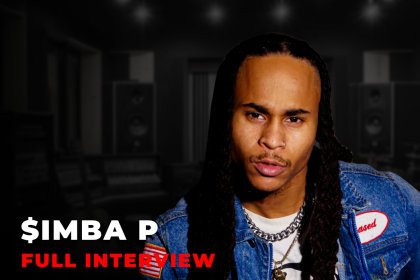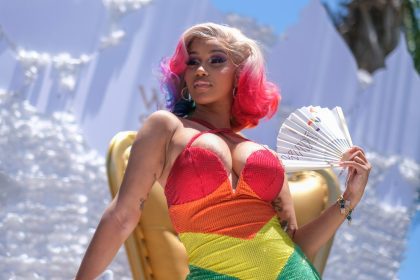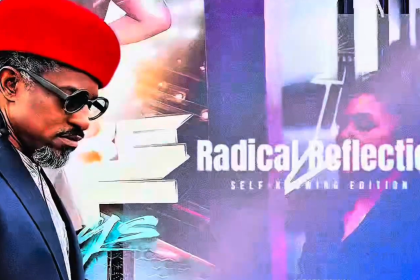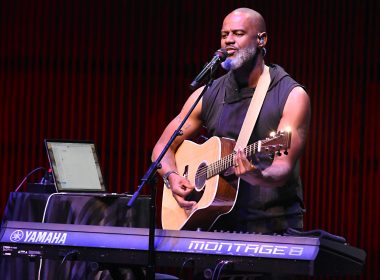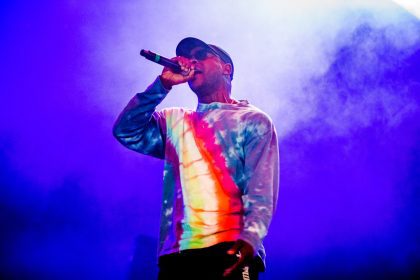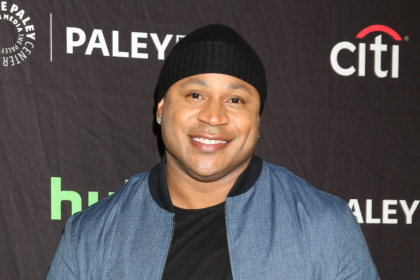
Bartees Strange is a genre-defying artist who continues to push the boundaries of sound and identity. With a voice that cuts through and lyrics that resonate deeply, he’s carving a unique lane at the intersection of rock, soul, and everything in between. Fresh off his performance at Kilby Block Party in Utah, Strange opens up about his musical influences, creative process, and the role that vulnerability—and therapy—play in both his artistry and personal growth. In this candid conversation, he invites us into the heart of his journey.
How does it feel fresh off stage?
After I play, I’m pretty numb. I’m just like, “Yeah … that was nice.” You know? Like, I’m really excited on stage, and then I come off stage, I’m just like, ah.
How’s your experience been here in Utah?
Utah is a funny place. I like it. I watch a lot of Sister Wives, so I love Sister Wives and like all the Mormon culture stuff — and the soda bars and stuff. I’m fascinated by that. I know that’s just like a piece of the Utah thing, but on that, like, Utah people are just sweet — really nice, bright-eyed, bushy-tailed, and always helpful. Always got something nice to say. So I totally agree with that. It’s been amazing. It’s more beautiful than I ever could imagine. Like, oh my God, it’s gorgeous. We drove in from Portland, cut through Idaho into Utah, and I was like, this is the most beautiful drive I’ve ever done in my life. The mountains themselves — just awe-inspiring. Blows your mind.
I mean, I think it’s really popular to be like, “Oh, we should live somewhere other than America.” I’m always looking at other places. But after you do a tour across the country and see the country change like that, you’re like — this place is gorgeous. America’s amazing. Yeah, everybody’s got amazing stuff. I was like, I would kind of miss some of this shit. Healthcare? Yeah. But damn… gorgeous. You feel me?
You have this style that blends everything — rock, soul, country. Where does that come from?
I played a lot of rock. I played a lot of country. I played a lot of soul. I used to play with Marcelles, this great soul singer who was on The Voice. I played country for this artist named Lizzy now — a wonderful Americana folk singer. I played in a lot of rock bands. I made a lot of beats growing up. I moved around a lot as a kid — Air Force family — so I just kind of fell in love with everything. And I didn’t really have guitar lessons, so I taught myself how to play after listening to all this stuff. Over the years, it just kind of became what I did. I was never really a master of any of it, but I kind of got it all, you know? So I just put stuff together and see how it lights.
You mentioned listening to a bunch of stuff. Who are some of your inspirations right now?
Sly Stone. I love Sly Stone. I feel like he’s the warrior version of Stevie Wonder. Like, he’s coming from a different perspective than Stevie, but could play a lot of stuff. Wasn’t a perfectionist but always got the song across. Even when the recordings were ugly, they were still beautiful. A great example is the song Family Affair. That song is so good. It sounds crazy — everything’s kind of out of place — but in a way, so are most families. And it’s just beautiful how it comes together. I admire the freedom he had. He was writing really intense, hard things to play, but he was jumping around with music equipment — drum machines, guitars, live drum sets, seven-piece bands, white drummers, women playing horns. He was ahead on a lot of stuff. I look up to that. My approach to music is very open-faced sandwich vibe — I’m just like, let’s just get it in. It’s gonna taste fine. I feel like he’s similar. So yeah, I love him right now.
What do you think it is about your music that draws people in?
I think my songs sound like a lot of songs they already like. People hear me and go, “Oh my God, that sounds like — wait, what is that?” And that’s how I write music. That’s how I learned music — by learning songs. So when I write, it’s just composites of everything I’ve ever heard. I’ll write something and be like, Man, what’s that song? And I’ll be like, oh — it’s probably a Block Party plus Fleetwood Mac plus like a George Clinton thing. Right? And I can hear it in my own stuff. I’ll be like, This section’s definitely from there, that one from there — you know?
So what’s your creative process like?
I start off on guitar a lot — or just a drum machine. I like riffs, so I’ll play a guitar riff or something, record it, and store it away. Then I store away a whole bunch of stuff and go back later to sort through what I saved, and see if I can take it further.
I do that on a rolling basis for years — until like 15, 20 songs are done. Then I record.
There’s vulnerability in your music. Why is that important for you to share?
Because for most of my life, the only place I felt I could be vulnerable was in my music. I felt like a shapeshifter in life. Air Force kid, moved around a lot, Black kid in mostly white areas — I just had to fit wherever I lived. I didn’t really get to be myself until recently. Music has always been where I could just speak — release me. That’s the only place I could be honest with myself. That’s why it is what it is.
You said you’ve only recently started to really feel like yourself. What gave you that clarity?
Music just kind of took over my life. I had an awakening. Every five or six years, I’d quit my job and try to start over. I had intense jobs in my 20s — worked for the government, worked for Obama for a bit, was a public affairs director for SEIU, worked with the Fight for $15 campaign, Berlin Rosen, and a climate change org. I was always playing in bands on the side. But I never felt like I could be myself in those places. I was the suited-up, “Black excellence” version of myself — which wasn’t really me. It’s just what I thought I had to be. When music started to take over, I was like, I’d rather be this and be broke and die doing this than be that other version every day. I didn’t want that anymore.
That was five years ago. You’re 36 now. How do you feel five years in?
Tired. But I’m glad I’m this tired and not tired of my life. I’d rather be exhausted and on the path to somewhere I wanna be than sick of everything — making good money.
Talking to you, I can see how music feeds you. What do you think it is about music that feeds us, helps us get through?
I think as Black people in America, we don’t realize how much fear plays a role in every day. Every place you go, every person you meet, every email you send — everything. But when I make music, it’s just me. And that’s the most freeing thing ever for me. That’s freedom. Me and my guitar — I can do anything I want. No one can take anything from me or tell me what to do.
So five years in, you’re in tune with who you are. What do the next five years look like?
I just wanna keep going. It’d be cool to be doing this another five years. And after that, I’ll probably say the same thing — or be like, this is cool, I wanna try something else. And that’ll be fine too.
Any new projects coming up?
Nah. I wanna go back to college — but I don’t know, man. I’m always producing and working on records. But my therapist is like, You gotta have some other stuff in your life you like too. This was always the thing I wanted to do. Now I’m doing it all the time, and I’m like, What do I even like besides this? So I’m kind of like a kid in a sandbox, alone, thinking — what are some things I was into as a kid that I didn’t get to explore? Stuff I can go back to now. I’m interested in sailing. Might take a boating class.
Since it’s Mental Health Awareness Month, why was it important for you — as a Black man — to get a therapist?
Because I didn’t know who I was. I spent my life being what other people wanted me to be.Then I hit a point where I was like, What do I want? Where am I? Who even am I? It’s a really isolating and confusing feeling. I needed someone to help me navigate back to myself. That’s why it was important.

